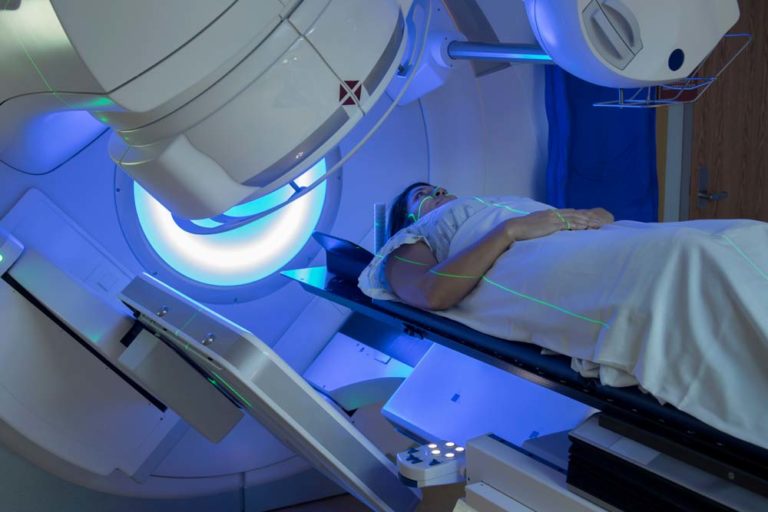Cancer
Medical Studies on DHEA – Cancer

Several studies indicate that unhealthy cell growth seems to be directly linked to low DHEA levels. Of course, DHEA cannot cure any type of tumor and should in no way be used as a substitute for established cell therapy. However, in laboratory experiments, some types of unhealthy cell growth have been successfully hindered by DHEA.
DHEA and Breast Cancer
Breast cancer is one of the most common types of cancers in women. Studies have shown that DHEA inhibits the proliferation and migration of breast cancer cells by modulating the cells’ protein expression. Although the exact mechanisms behind this effect are not yet fully understood, it is suspected that DHEA may act on various signaling pathways, such as the PI3K/AKT pathway, which plays a significant role in the proliferation of unhealthy cell growth.
DHEA in Cervical Cancer and Prostate Cancer
Studies have shown that DHEA has a strong inhibitory effect on the proliferation of cervical carcinoma cells. DHEA also appears to have a positive influence on prostate cancer, again via the aforementioned PI3K/AKT pathway.
Medical Studies on DHEA – Cancer
Selected by bioinformatics and molecular docking analysis, Dhea and 2-14,15-Eg are effective against cholangiocarcinoma
To identify novel targets for the diagnosis, treatment and prognosis of cholangiocarcinoma, we screen ideal lead compounds and preclinical drug candidates with MYC inhibitory effect from the ZINC database, and verify the therapeutic effect of Dhea and 2-14,15-Eg on cholangiocarcinoma.
Selected by Bioinformatics and Molecular Docking Analysis, Dhea and 2-14,15-Eg are Effective Against Cholangiocarcinoma
To identify novel targets for the diagnosis, treatment and prognosis of cholangiocarcinoma, we screen ideal lead compounds and preclinical drug candidates with MYC inhibitory effect from the ZINC database, and verify the therapeutic effect of Dhea and 2-14,15-Eg on cholangiocarcinoma.
Osteoblasts generate testosterone from DHEA and activate androgen signaling in prostate cancer cells
Bone metastasis is a complication of prostate cancer in up to 90% of men afflicted with advanced disease. Therapies that reduce androgen exposure remain at the forefront of treatment. However, most prostate cancers transition to a state whereby reducing testicular androgen action becomes ineffective.
Investigation of physiological effects induced by dehydroepiandrosterone in human endothelial cells and ovarian cancer cell line
Dehydroepiandrosterone (DHEA) is an endogenous hormone that acts as a ligand for several cellular receptors. An age-dependent decline in circulating levels of DHEA is linked to changes in various physiological functions. In gynecological clinical practice, DHEA is commonly prescribed to induce ovulation.
DHEA inhibits proliferation, migration and alters mesenchymal-epithelial transition proteins through the PI3K/Akt pathway in MDA-MB-231 cells
Cancer is one of the leading causes of death worldwide, and breast cancer is the most common among women. Dehydroepiandrosterone (DHEA), the most abundant steroid hormone in human serum, inhibits proliferation and migration of breast cancer cells, modulating the expression of proteins involved in mesenchymal-epithelial transition (MET). However, the underlying molecular mechanisms are not fully understood.
Circulating levels of sex steroid hormones and gastric cancer
Men develop gastric cancer more frequently than women, yet little is known about the mechanisms underlying this sex difference. Sex steroid hormones may influence gastric cancer risk. We therefore assessed whether major circulating adrenal precursors, androgens and estrogens were associated with gastric cancer in a high-risk Mexican population.
Determination of intraprostatic and intratesticular androgens
Androgens represent the main hormones responsible for maintaining hormonal balance and function in the prostate and testis. As they are involved in prostate and testicular carcinogenesis, more detailed information of their active concentration at the site of action is required.
Inclusion of endogenous plasma dehydroepiandrosterone sulfate and mammographic density in risk prediction models for breast cancer
Endogenous hormones and mammographic density are risk factors for breast cancer. Joint analyses of the two may improve the ability to identify high-risk women.
Intracrinology-revisited and prostate cancer
The formation of steroid hormones in peripheral target tissues is referred to as their intracrine formation. This process occurs in hormone dependent malignancies such as prostate and breast cancer in which the disease can be either castrate resistant or occur post-menopausally, respectively. In these instances, the major precursor steroid of androgens and estrogens is dehydroepiandrosterone (DHEA) and DHEA-SO4.
Pharmacological activities of dehydroepiandrosterone: a review
Dehydroepiandrosterone (DHEA) is a steroidal hormone secreted by Zonareticularis of the adrenal cortex with a characteristic age related pattern of secretion. These hormones are inactive precursors that are transformed into active sex steroids in peripheral target tissues. These hormones are used for the energy, vitality and the natural support of most bodily functions that involve the endocrine system.
Dehydroepiandrosterone inhibits the proliferation and induces the death of HPV-positive and HPV-negative cervical cancer cells through an androgen- and estrogen-receptor independent mechanism
Dehydroepiandrosterone (DHEA) has a protective role against epithelial-derived carcinomas; however, the mechanisms remain unknown. We determined the effect of DHEA on cell proliferation, the cell cycle and cell death in three cell lines derived from human uterine cervical cancers infected or not with human papilloma virus (HPV).
Human prostate stromal cells stimulate increased PSA production in DHEA-treated prostate cancer epithelial cells
Dehydroepiandrosterone (DHEA) is commonly used as a dietary supplement and may affect prostate pathophysiology when metabolized to androgens and/or estrogens.
Prevention of diabetes, hepatic injury, and colon cancer with dehydroepiandrosterone
The levels of dehydroepiandrosterone (DHEA) and its sulfate (DHEA-S) peak in human in their twenties, then decrease gradually with age. The physiological importance of DHEA was not clear until recent research reports showing that DHEA has beneficial effects on preventing diabetes, malignancy, inflammation, osteoporosis, and collagen disease.